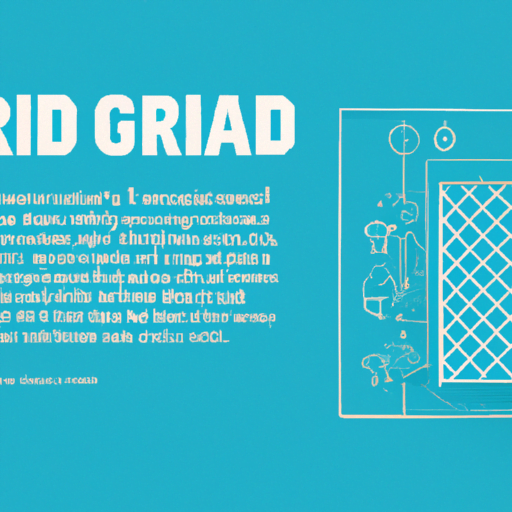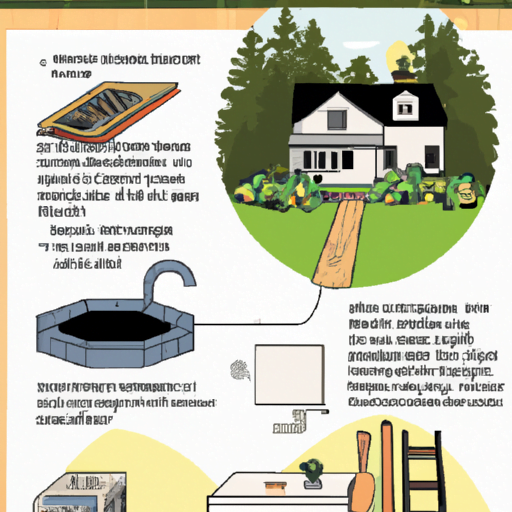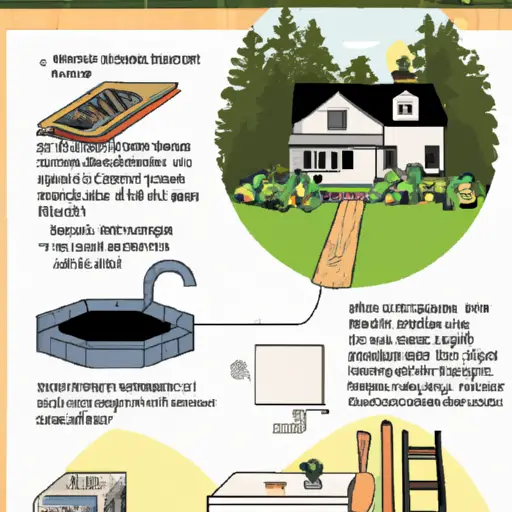Have you ever wondered what it means to live off-grid? In today’s fast-paced and technology-driven world, the idea of disconnecting from the grid and embracing a more self-sufficient and sustainable lifestyle is becoming increasingly appealing to many individuals. But what does it really mean to be an off-grid person? In this article, we will delve into the meaning of off-grid living and explore the various aspects that are involved in this way of life.
Living off-grid essentially means being independent from public utilities such as electricity, water, and gas that are typically provided by the government or private companies. Instead, off-grid individuals generate their own power through renewable sources like solar panels or wind turbines, collect rainwater for their supply, and utilize alternative methods for heating and cooking. This self-reliance allows them to disconnect from the traditional infrastructure and reduce their carbon footprint.
Moreover, off-grid living encompasses more than just being self-sufficient in terms of energy and water. It often involves adopting sustainable practices and principles in all aspects of life, from growing one’s own food to minimizing waste and utilizing natural resources responsibly. Off-grid individuals prioritize living harmoniously with nature, appreciating the importance of biodiversity and ecological balance. They strive to minimize their impact on the environment and leave a smaller ecological footprint.
In the following sections, we will delve deeper into the different aspects of off-grid living, exploring the challenges, benefits, and strategies involved in this lifestyle. Whether you’re simply curious about the concept or considering transitioning to off-grid living, this article will provide you with valuable insights and information to help you understand the meaning and intricacies of this way of life. So, let’s begin our journey into the fascinating world of off-grid living!

What is Off-Grid Living
The Concept of Off-Grid Living
Off-grid living refers to a lifestyle that is disconnected from the traditional power grid and utilities, allowing individuals to be self-sufficient and rely on their own resources for electricity, water, and food. It involves living in a way that minimizes dependence on public utilities and embracing alternative methods for energy production, water management, and food production.
Benefits of Off-Grid Living
Living off-grid offers several advantages that have attracted a growing number of people seeking a more sustainable and self-sufficient lifestyle. One of the main benefits is the opportunity for energy independence. By utilizing renewable energy sources such as solar panels, wind turbines, or even hydroelectric power, off-grid individuals can produce their own electricity and reduce or eliminate their reliance on fossil fuels. This not only saves them money in the long run but also reduces their carbon footprint and contributes to a cleaner environment.
Another significant benefit of off-grid living is the ability to manage water resources sustainably. Through rainwater harvesting systems or wells, off-grid individuals can collect and store water for daily use, reducing their dependence on municipal water supply or groundwater extraction. This not only conserves water but also provides a sense of security during periods of drought or water scarcity.
Off-grid living also promotes food production and self-sufficiency. By growing their own fruits, vegetables, and herbs, individuals can have a constant supply of fresh, organic produce, reducing reliance on commercially grown and transported food. This not only improves the quality of their diet but also reduces the carbon emissions associated with long-distance food transportation.
Practical Aspects of Off-Grid Living
Energy Independence
To achieve energy independence, off-grid individuals typically rely on renewable energy sources such as solar power systems or wind turbines. Solar power systems convert sunlight into electricity through the use of photovoltaic cells. This energy is then stored in batteries for use during periods of low sunlight. Similarly, wind turbines harness the power of wind to generate electricity. By combining these energy sources with efficient energy management techniques and energy-saving appliances, off-grid individuals can minimize energy consumption and maximize their self-sufficiency.
Water Management
Water management is a crucial aspect of off-grid living. Rainwater harvesting systems collect and store rainwater from roofs, which can be used for various purposes such as gardening, washing, and even drinking with proper filtration. This reduces reliance on municipal water supply or groundwater sources, conserves water, and provides a sustainable solution in regions facing water scarcity.
Food Production
Off-grid living often incorporates various methods of food production to promote self-sufficiency. This includes organic gardening, permaculture, hydroponics, and aquaponics. Organic gardening involves growing fruits, vegetables, and herbs using natural fertilizers and pesticides, promoting a healthy and sustainable approach to food production. Permaculture focuses on designing and creating sustainable food systems that mimic natural ecosystems, maximizing biodiversity and minimizing waste. Hydroponics and aquaponics utilize soil-less systems and nutrient-rich water to grow plants and raise fish simultaneously, providing a symbiotic and highly efficient method of food production.
The Off-Grid Lifestyle
Self-Sufficiency
Self-sufficiency is a core principle of the off-grid lifestyle. By relying on their own resources for electricity, water, and food, off-grid individuals remove themselves from the consumer-driven society and take control of their basic needs. This gives them a sense of empowerment and reduces their dependence on external systems that may be vulnerable to economic or environmental fluctuations.
Minimalism
Off-grid living often goes hand in hand with minimalism. By living with fewer material possessions and embracing a simpler lifestyle, individuals can reduce their environmental impact and focus on what truly matters to them. Minimalism encourages a conscious approach to consumption, where quality and meaning overshadow quantity and accumulation. It allows individuals to live more intentionally, focusing on personal growth, relationships, and experiences rather than material possessions.
Connection with Nature
Living off-grid also provides a unique opportunity to connect with nature on a deeper level. With a reduced reliance on modern conveniences and distractions, off-grid individuals can spend more time outdoors, appreciating the beauty of the natural world, and developing a greater understanding of their place within it. This connection with nature has been shown to have numerous physical and mental health benefits, including reduced stress levels, improved mood, and increased creativity.

Challenges of Off-Grid Living
Initial Costs and Set-Up
One of the biggest challenges of off-grid living is the initial investment and set-up costs. Building a sustainable off-grid home requires careful planning and investment in alternative energy systems, water management infrastructure, and food production systems. This can be financially demanding and may require individuals to save up or seek alternative financing options. However, it’s important to note that these costs are generally recouped over time through reduced utility bills and increased self-sufficiency.
Maintenance and Repairs
Maintaining and repairing off-grid systems can also pose challenges. Unlike with traditional utilities, off-grid systems require ongoing monitoring, maintenance, and occasional repairs. Individuals must have a good understanding of the systems they use and be prepared to troubleshoot and address any issues that may arise. This requires a certain level of technical knowledge and practical skills, or the willingness to learn and adapt.
Social Isolation
Another challenge faced by off-grid individuals is social isolation. By choosing to live in remote or off-grid locations, they may be physically isolated from neighbors, friends, and even basic services. This can lead to a sense of loneliness and the need for intentional efforts to maintain social connections. However, many off-grid individuals find ways to overcome this challenge by actively seeking out like-minded individuals, participating in community events, or organizing off-grid living communities.
Off-Grid Living Communities
Finding Like-Minded Individuals
Finding like-minded individuals is essential for many off-grid dwellers seeking a sense of community and support. Various online platforms, social media groups, and forums cater specifically to off-grid living and can be valuable resources for connecting with others who share similar values and goals. Attending off-grid living events, workshops, or retreats can also provide opportunities to connect with like-minded individuals and learn from their experiences.
Creating Sustainable Communities
Some off-grid individuals choose to take their desire for community one step further by creating intentional off-grid living communities. These communities are designed to promote self-sufficiency, communal support, and shared resources. By pooling their knowledge, skills, and resources, these communities can create a more sustainable and resilient way of living. This not only strengthens the social fabric but also provides individuals with a support network during challenging times.
Off-Grid Technology
Solar Power Systems
Solar power systems are a cornerstone of off-grid living. They harness the energy from the sun and convert it into electricity, which can be used to power lights, appliances, and other electrical devices. Solar panels are typically installed on rooftops or in open spaces where they can capture the most sunlight. The generated electricity can be stored in batteries for later use, ensuring a constant and reliable energy supply, even during periods of low sunlight.
Rainwater Harvesting
Rainwater harvesting systems collect and store rainwater for various uses, including gardening, washing, and even drinking. Rainwater is collected from rooftops and directed into storage tanks, where it undergoes filtration and treatment to ensure its quality and safety. This eliminates the need for a traditional water supply and reduces reliance on groundwater sources or municipal water.
Composting Toilets
Composting toilets offer a sustainable and alternative solution to traditional flush toilets. These toilets use little to no water and instead rely on a natural decomposition process to turn human waste into nutrient-rich compost. The composting process is odorless when done correctly and can be used as a fertilizer for plants. Composting toilets not only save water but also reduce the strain on sewage and wastewater treatment systems, making them an eco-friendly option for off-grid living.
Off-Grid Living and the Environment
Reducing Carbon Footprint
Off-grid living significantly reduces an individual’s carbon footprint. By relying on renewable energy sources such as solar or wind power, off-grid individuals minimize their use of fossil fuels, which are major contributors to greenhouse gas emissions. Additionally, off-grid living encourages a conscious approach to resource consumption, promoting energy and water efficiency, and reducing waste. This overall reduction in environmental impact is a vital step towards mitigating climate change and preserving the natural environment.
Conserving Resources
Off-grid living is inherently resource-conscious. By generating their own electricity, managing water sustainably, and growing their own food, off-grid individuals reduce their reliance on finite resources. This includes fossil fuels, water from municipal supplies or underground sources, and commercially grown and transported food. By minimizing their consumption and maximizing self-sufficiency, off-grid individuals contribute to the conservation of essential resources and foster a more sustainable way of living.
Off-Grid Living and Mental Well-Being
Simplicity and Mental Clarity
Living off-grid promotes simplicity and minimalism, which can have a positive impact on mental well-being. By removing the distractions and clutter of modern life, individuals can experience mental clarity and focus. The slower pace of off-grid living allows for a greater connection with oneself, reduced stress levels, and improved overall mental health.
Escape from Consumerism
Off-grid living also provides a means of escaping the consumer-driven society and its associated pressures and demands. By shifting focus away from material possessions and prioritizing basic needs, individuals can break free from the cycle of consumerism and find contentment in simpler pleasures. This promotes a sense of freedom and fulfillment that goes beyond the superficialities of the modern world.
Legal and Regulatory Considerations for Off-Grid Living
Building Codes and Zoning Regulations
When considering off-grid living, it’s essential to be aware of building codes and zoning regulations that may apply to the desired location. These regulations vary depending on the jurisdiction and may dictate factors such as the type and size of structures, accessibility, sanitation, and fire safety. Compliance with these codes and regulations ensures the safety and well-being of off-grid individuals and helps maintain the integrity of the surrounding environment.
Permits and Licenses
In addition to building codes and zoning regulations, permits and licenses may be required for certain off-grid systems or activities. For example, obtaining permits for the installation of solar panels or rainwater harvesting systems may be necessary to ensure compliance with safety and environmental standards. It’s important to research local laws and regulations and obtain the necessary permits and licenses to ensure compliance and avoid potential legal issues.
Conclusion
The concept of off-grid living encompasses a range of practices and values that prioritize self-sufficiency, sustainability, and a deep connection with nature. While it presents its unique challenges, off-grid living offers numerous benefits, such as energy independence, water management, and food production. It encourages a minimalist and conscious approach to resource consumption and promotes mental well-being and a break from consumerism. By embracing off-grid living, individuals can contribute to a more sustainable future and create a lifestyle that aligns with their values and aspirations.




